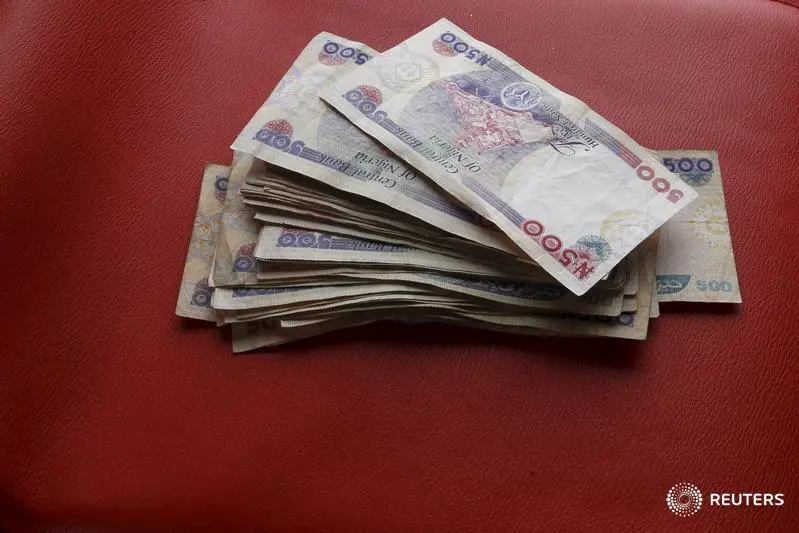PHOTO
Nigeria’s naira and eurobonds rose sharply on Thursday buoyed by a $3 billion loan to help calm the currency market and the appointment of investment banker Olawale Edun as finance minister.
The naira gained as much as 860 to the U.S. dollar on the black market from a record low of 960 earlier in the week, while country's eurobond prices also rallied on positive sentiment during a week that has put the economy front and centre.
The state oil firm NNPC secured the loan to increase the supply of hard currency on the local foreign-exchange market, igniting fresh hopes for a beleaguered naira that has fallen almost 40% in the black market since May.
Its decline was triggered by new market-friendly policies aimed at boosting Nigeria's economy initiated by President Bola Tinubu, including the lifting of currency controls imposed by the central bank to keep the naira artificially high and the removal of a fuel subsidy that has sent petrol prices sharply higher, worsening inflation.
The NNPC loan was announced on Wednesday only days after acting central bank governor Folashodun Shonubi indicated the bank planned "significant" currency market actions, while blaming speculators for the naira's decline.
"A strengthened Naira as a result of this initiative will lead to a reduction in fuel costs," O'tega Ogra, a special adviser to the president, said in a post on X, formerly known as Twitter. "This means that if the Naira appreciates in value, the cost of fuel will drop and further increases will be halted."
Also commenting on X, Razia Khan, Standard Chartered Bank's Chief Economist for Africa and Middle East said: "Essentially, Nigeria gets an oil-backed loan via NNPC."
The central bank’s acting governor Shonubi had said the regulator was keen to take steps that could improve liquidity in the market, and the loan did that although it was not clear that this was part of the measures he had forecast.
Another tonic for the naira came in the form of positive market sentiments fo Tinubu's appointment of investment banker Wale Edun as finance minister late on Wednesday, which also sparked a rally in the country’s eurobonds.
Edun is credited with crafting the new more liberal policy measures under the new administration that were introduced by Tinubu at his inauguration in late May. The new finance minister was a special advisor to Tinubu during his term as governor of Lagos State, Nigeria's biggest commercial hub.
"His appointment at Finance will put an astute financial and banking expert with years of experience at the centre of the nation’s economic challenges," the Nigerian Tribune online media site said in an editorial, echoing the market’s welcoming of Eden who has a background in economics, international finance and corporate finance.
The country's eurobond prices have had a roller coaster few days after taking a beating earlier in the week when Tinubu's special advisor and spokesman Ajuri Ngelale said on Tuesday that the president did not see petrol prices rising any further, raising concerns that the fuel subsidy could be restored.
Ngelale however confirmed that the subsidy would not be reinstated, saying the government was moving forward “without looking back" to the days when the subsidy - which cost the treasury $10 billion last year alone - was in force.
(Editing by Brinda Darasha; brinda.darasha@lseg.com)




















